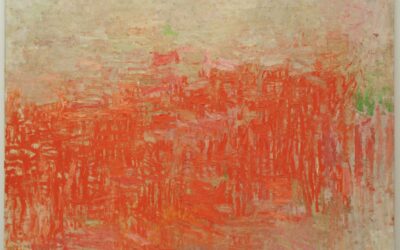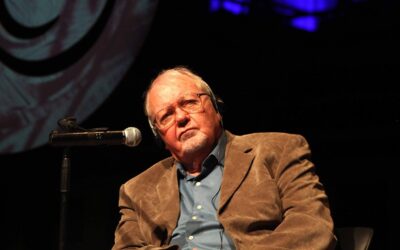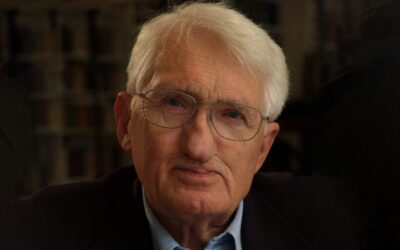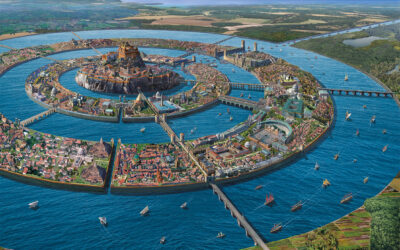Who was Bachelard?

Gaston Bachelard (1884-1962) was a French philosopher and literary critic who made significant contributions to the fields of poetics, the philosophy of science, and the analysis of the imagination. His work explored the ways in which the human psyche engages with and constructs meaning from the world, with a particular focus on the role of imagination, reverie, and poetic language. Bachelard’s interdisciplinary approach and his emphasis on the creative and transformative power of the imagination have had a lasting impact on literary theory, aesthetics, and the philosophy of science.
In this comprehensive essay, we will delve into Bachelard’s key theoretical insights, his unique approach to the study of imagination and poetics, and the enduring relevance of his ideas in contemporary thought. We will examine how Bachelard’s work has shaped our understanding of the interplay between science and poetry, the importance of reverie and daydreaming, and the role of the elements in shaping human imagination.
Bachelard’s Philosophy of Science and Epistemology
2.1. The Formation of the Scientific Mind
Bachelard’s early work focused on the philosophy of science and the development of scientific thought. In his book “The Formation of the Scientific Mind” (1938), Bachelard argued that the progress of science is not a linear accumulation of knowledge but rather a series of ruptures and breaks with previous ways of thinking. He introduced the concept of “epistemological obstacles,” referring to the ingrained habits of thought that hinder scientific progress and must be overcome for new knowledge to emerge.
Bachelard’s epistemology emphasized the importance of reflexivity and the need for scientists to continually question their assumptions and methods. He argued that true scientific thought requires a kind of intellectual flexibility and openness to new ideas that he termed “open rationalism.”
2.2. The New Scientific Spirit
In “The New Scientific Spirit” (1934), Bachelard proposed that the advent of modern physics, particularly quantum mechanics and relativity theory, had fundamentally transformed the nature of scientific thought. He argued that these new theories demanded a radical reorientation of the scientific mind, one that embraced the inherent uncertainties and paradoxes of the subatomic world.
Bachelard’s work in this area anticipated many of the key themes of postmodern philosophy of science, including the recognition of the role of language and metaphor in shaping scientific discourse and the acknowledgment of the inherent limitations of human knowledge.
2.3. The Dialectic of Duration
Bachelard’s philosophy of science also addressed the nature of time and the experience of duration. In “The Dialectic of Duration” (1936), he argued that the human experience of time is not a simple, linear flow but rather a complex dialectic between different modes of temporal consciousness.
Bachelard distinguished between “lived time,” the subjective experience of duration, and “scientific time,” the objective, measurable time of physics. He argued that a true understanding of time requires a synthesis of these two perspectives, one that acknowledges both the fluidity of subjective experience and the regularity of objective measurement.
Bachelard’s Poetics of Space and the Imagination
3.1. The Poetics of Space
Bachelard’s most famous work, “The Poetics of Space” (1958), is a philosophical and literary exploration of the ways in which physical spaces shape human imagination and experience. In this book, Bachelard examines the emotional and symbolic resonances of various spatial archetypes, such as the house, the attic, the cellar, and the drawer.
Bachelard argues that these intimate spaces serve as poetic images that evoke deep-seated emotional responses and provide a framework for the imaginative exploration of the self and the world. He suggests that the poetic image has a kind of primal, autonomous power that transcends individual psychology and taps into universal human experiences.
3.2. The Psychoanalysis of Fire and the Elements
In his earlier works, such as “The Psychoanalysis of Fire” (1938) and the series of books on the elements (water, air, and earth), Bachelard explored the ways in which the fundamental elements of nature shape human imagination and symbolic thought.
Bachelard argued that each element has its own unique “material imagination,” a set of poetic images and associations that structure our emotional and aesthetic responses to the world. He suggested that these elemental imaginaries are deeply rooted in human consciousness and serve as the basis for much of our creative and symbolic expression.
3.3. Reverie and the Poetic Imagination
Throughout his work, Bachelard emphasized the importance of reverie and daydreaming for the development of the poetic imagination. He argued that reverie is a fundamentally creative act, one that allows the mind to free itself from the constraints of rational thought and explore new possibilities of meaning and experience.
Bachelard saw reverie as a kind of waking dream, a state of consciousness in which the boundaries between self and world, real and imaginary, become fluid and permeable. He suggested that the cultivation of reverie is essential for the growth of the poetic imagination and the creation of new forms of knowledge and experience.
Bachelard’s Influence on Literary Theory and Aesthetics
4.1. The Reception of Bachelard’s Work
Bachelard’s work had a significant impact on the development of literary theory and aesthetics in the latter half of the 20th century. His emphasis on the poetic image and the creative power of the imagination resonated with many writers and critics who were seeking to move beyond the formalism and structuralism that had dominated literary studies in the early 20th century.
In particular, Bachelard’s work was influential in the development of phenomenological and hermeneutic approaches to literature, which emphasized the subjective experience of the reader and the open-ended nature of interpretation.
4.2. Influence on Phenomenology and Hermeneutics
Bachelard’s poetics of space and his theory of the poetic image had a significant influence on the development of phenomenology, particularly in the work of Martin Heidegger and Maurice Merleau-Ponty. These thinkers drew on Bachelard’s insights into the ways in which physical spaces and poetic language shape human experience and consciousness.
In the field of hermeneutics, Bachelard’s work was influential in the development of theories of interpretation that emphasized the creative role of the reader in constructing meaning from texts. His idea of the “poetic leap,” the moment of imaginative insight that transforms our understanding of a text or image, became a key concept in hermeneutic theory.
4.3. Impact on Surrealism and Postmodernism
Bachelard’s celebration of the transformative power of the imagination and his emphasis on the importance of dream-like states of consciousness had a strong affinity with the concerns of the Surrealist movement. His work was admired by many Surrealist writers and artists, who saw him as a kindred spirit in the exploration of the irrational and the marvelous.
In the postmodern era, Bachelard’s work has been influential in the development of theories of intertextuality and the blurring of boundaries between different genres and modes of discourse. His idea of the “material imagination” has also been taken up by eco-critics and theorists of the Anthropocene, who see it as a way of understanding the complex entanglements of human consciousness and the natural world.
The Relevance of Bachelard’s Ideas in Contemporary Thought and Criticism
5.1. Bachelard and the Environmental Humanities
In recent years, there has been a growing interest in Bachelard’s work among scholars in the environmental humanities and eco-criticism. Bachelard’s emphasis on the material imagination and the poetic resonances of the elements has been seen as a valuable resource for rethinking the relationship between human culture and the natural world.
Eco-critics have drawn on Bachelard’s work to develop new theories of “elemental ecocriticism,” which explore the ways in which the fundamental elements of nature shape human imagination and experience. This approach has been particularly influential in the study of literature and the arts, where Bachelard’s ideas have been used to illuminate the ecological dimensions of poetic and aesthetic expression.
5.2. Bachelard and the Philosophy of Place
Bachelard’s poetics of space has also been influential in the development of contemporary theories of place and space. His emphasis on the emotional and imaginative resonances of physical spaces has been taken up by philosophers, geographers, and architectural theorists who are interested in the ways in which places shape human experience and identity.
In particular, Bachelard’s work has been seen as a key resource for the development of a “topophilic” approach to the study of place, one that emphasizes the affective and poetic dimensions of our attachments to particular locations and environments.
5.3. Bachelard and Interdisciplinary Scholarship
Finally, Bachelard’s work has been seen as a model for interdisciplinary scholarship and the crossing of boundaries between different fields of knowledge. Bachelard’s own intellectual trajectory, which spanned the natural sciences, philosophy, and literary studies, has been held up as an example of the kind of integrative, boundary-crossing thinking that is needed to address the complex challenges of the contemporary world.
In particular, Bachelard’s notion of “open rationalism” and his emphasis on the creative interplay between reason and imagination has been seen as a valuable resource for developing new forms of interdisciplinary inquiry that can bridge the gap between the sciences and the humanities.
Legacy
Gaston Bachelard’s intellectual legacy is one of remarkable breadth and depth, spanning the fields of philosophy, science, and literature. His work has had a profound impact on the development of 20th-century thought, shaping key debates in epistemology, aesthetics, and literary theory.
Bachelard’s emphasis on the creative power of the imagination, his attentiveness to the poetic resonances of physical spaces and natural elements, and his commitment to interdisciplinary inquiry continue to inspire and challenge scholars and thinkers across a wide range of fields.
As we grapple with the urgent questions of our time, from the environmental crisis to the need for new forms of knowledge and understanding, Bachelard’s work remains a vital resource and guide. His ideas remind us of the importance of cultivating a poetic and imaginative engagement with the world, one that can open up new possibilities for thought and action in the face of an uncertain future.
In the end, Bachelard’s enduring legacy is one of intellectual openness, creativity, and a deep appreciation for the power of the human imagination to transform and enchant the world. As we continue to explore the mysteries of science, art, and the human psyche, his work will undoubtedly remain a touchstone and inspiration for generations to come.
Read More Depth Psychology Articles:
Taproot Therapy Collective Podcast
Philosophy
Bibliography
Bachelard, G. (1934). The New Scientific Spirit. Beacon Press.
Bachelard, G. (1936). The Dialectic of Duration. Clinamen Press.
Bachelard, G. (1938). The Formation of the Scientific Mind. Clinamen Press.
Bachelard, G. (1938). The Psychoanalysis of Fire. Beacon Press.
Bachelard, G. (1942). Water and Dreams: An Essay on the Imagination of Matter. Dallas Institute Publications.
Bachelard, G. (1943). Air and Dreams: An Essay on the Imagination of Movement. Dallas Institute Publications.
Bachelard, G. (1948). Earth and Reveries of Will: An Essay on the Imagination of Matter. Dallas Institute Publications.
Bachelard, G. (1958). The Poetics of Space. Penguin Classics.
Bachelard, G. (1960). The Poetics of Reverie. Penguin Classics.
Bachelard, G. (1964). The Poetics of Fire: Architectural Drawing. Architectural Association Publications.
Kaplan, E. K. (1972). Gaston Bachelard’s Philosophy of Imagination: An Introduction. Philosophy and Phenomenological Research, 33(1), 1-24.
McAllester Jones, M. (1991). Gaston Bachelard, Subversive Humanist: Texts and Readings. University of Wisconsin Press.
Smith, R. (2016). Gaston Bachelard: Philosopher of Science and Imagination. SUNY Press.
Thiboutot, C. (2001). Gaston Bachelard and the Notion of “Phenomenotechnique”. Perspectives on Science, 9(3), 313-328.
Tiles, M. (1984). Bachelard: Science and Objectivity. Cambridge University Press.


























0 Comments